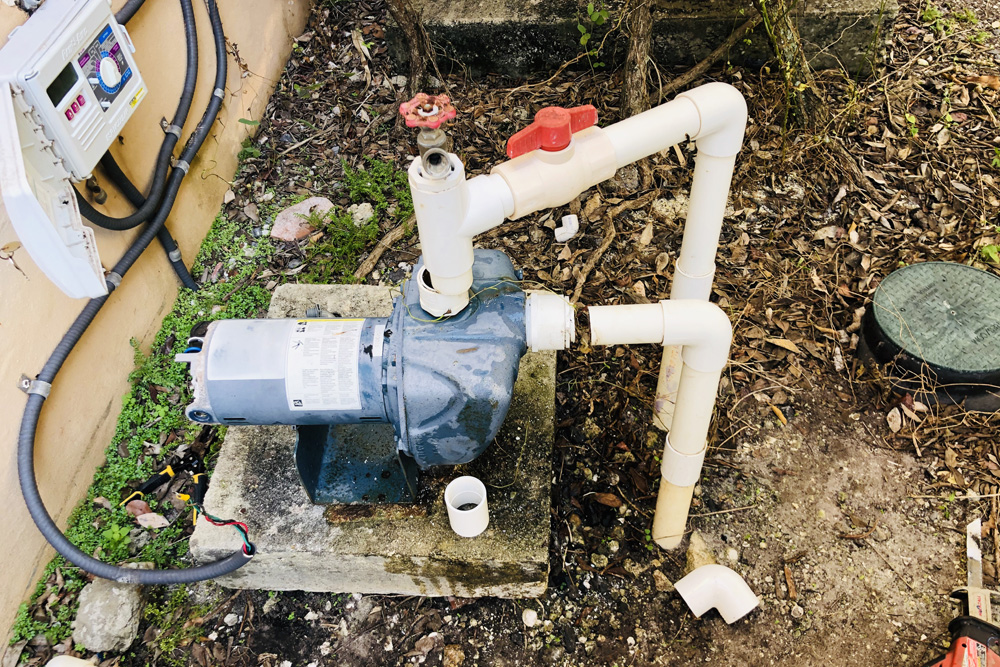Trustworthy Pump Repairs & Installation: Your Water System's Lifeline
Trustworthy Pump Repairs & Installation: Your Water System's Lifeline
Blog Article
Understanding the Key Elements of Effective Water Purification Equipments

Significance of Water Filtration Systems
Water filtering systems play an important duty in making certain access to secure and tidy alcohol consumption water by properly removing pollutants and impurities. These systems are important in dealing with the growing issues over water high quality and the potential health and wellness dangers connected with consuming contaminated water. By utilizing different filtering mechanisms such as reverse osmosis, triggered carbon, and UV sterilization, water purification systems can effectively remove unsafe compounds like microorganisms, viruses, hefty metals, and chemicals from the water.
Additionally, water filtration systems assist to improve the taste and smell of water by eliminating chlorine, debris, and various other pollutants that can impact its quality. Water Filtration Systems. This improvement in water quality not only makes it extra palatable however additionally encourages individuals to consume alcohol an adequate amount of water daily, advertising better hydration and general wellness
Kinds Of Filtering Parts

Physical filters are developed to literally strain out contaminations from the water. These filters can be made of materials like ceramic, carbon, and even sand, and they function by trapping bits bigger than the filter's pores as water passes with.
Chemical filters make use of various chemical processes to get rid of impurities from the water. Examples consist of turned on carbon filters, which adsorb impurities, and reverse osmosis membranes, which use pressure to separate impurities from the water.
Biological filters utilize living organisms like algae or bacteria to damage down natural matter and contaminants in the water. These filters are usually made use of in wastewater therapy plants or natural water purification systems.
Comprehending the different sorts of filtering elements is vital for choosing one of the most appropriate water filtering system for certain purification requirements.
Function of Sediment Filters
Debris filters play a crucial role in water purification systems by properly recording strong bits suspended in the water. These filters are generally the first line of defense in a purification system, getting rid of bigger bits such as sand, silt, dirt, and corrosion prior to the water moves through finer purification phases. By trapping these sediments, the filters stop them from getting to downstream elements, thus expanding the life-span and effectiveness of the entire system.
Overlooking this maintenance can lead to blocking, reduced water circulation, and compromised purification effectiveness. On the whole, sediment filters are crucial components that add dramatically to the effectiveness of water you can find out more filtering systems.
Duty of Activated Carbon Filters
Playing a critical role in water filtering systems, turned on carbon filters contribute in eliminating contaminations and impurities from the supply of water. These filters are created to adsorb and catch a vast array of toxins, consisting of chlorine, volatile organic compounds (VOCs), pesticides, and herbicides. The triggered carbon product has a huge surface area, enabling the efficient trapping of pollutants with a procedure called adsorption. As water travels through the filter, the turned on carbon brings in and holds onto the impurities, guaranteeing that the water that comes out beyond is cleaner and much safer for usage.
Triggered carbon filters are extremely efficient at improving the taste and odor of water by reducing chemicals that can influence its top quality. wikipedia reference They are additionally qualified of eliminating specific heavy steels like lead and mercury. In addition, these filters can assist avoid the buildup of bacteria and algae in water, more boosting its general high quality. Due to their convenience and integrity, triggered carbon filters are an essential element in ensuring that water is detoxified to the highest possible requirements before getting to consumers.
Comprehending Reverse Osmosis Systems
Reverse osmosis systems are innovative water filtration systems that utilize an innovative process to eliminate pollutants and contaminations from drinking water. These systems work by using pressure to the water, forcing it with a semi-permeable membrane layer.
In addition, reverse osmosis systems are reasonably low-maintenance and can be mounted under the sink or in a main purification system, offering practical access to tidy water throughout the house. On the whole, recognizing exactly how reverse osmosis systems work can help people make educated decisions about their water filtration demands.
Final Thought
In conclusion, reliable water filtering systems are essential for ensuring secure and clean alcohol consumption water. By understanding the feature and role of each part, individuals can make enlightened decisions when selecting a water filtering system.
Water filtration systems play a critical function in making certain access to risk-free and clean drinking water by effectively getting rid of click now pollutants and impurities. By utilizing different purification mechanisms such as reverse osmosis, turned on carbon, and UV sterilization, water filtering systems can successfully remove damaging materials like bacteria, infections, hefty metals, and chemicals from the water supply.
Debris filters play a crucial function in water purification systems by effectively catching strong particles suspended in the water (Water Treatment).Playing an essential function in water purification systems, turned on carbon filters are instrumental in removing pollutants and pollutants from the water supply.Reverse osmosis systems are sophisticated water purification systems that use a sophisticated process to remove contaminants and pollutants from drinking water
Report this page